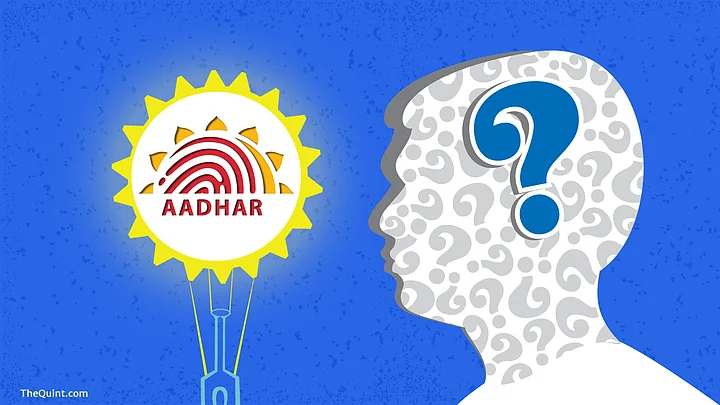Diwali without shopping is like a Diwali without lights. Just as one can celebrate the festival of lights without the ensuing toxic smoke, one can just as well splurge this festive season without having to produce one’s Aadhaar.
We answer your questions about the why, what, and how of dealing with demands for Aadhaar this Diwali season.
I want to purchase a new TV on EMI. Will I need to produce my Aadhaar?
No you will not. Not after the five-judge Constitutional bench of the Supreme Court declared the use of Aadhaar e-KYC by banks as unconstitutional on 26 September. Moreover, UIDAI, the Aadhaar-issuing body, issued a circular on 23 October directing all banks that they cannot use Aadhaar e-KYC authentication for opening bank accounts etc. This applies to those citizens who do not seek subsidies or welfare from the State.
If the salesperson or shop owner insists upon it as proof of identity or address, you have the right to refuse. Aadhaar, by its design, is only valid as proof of authentication through biometrics and is not a proof of identity as a paper card.
What if the store insists on it? What are my arguments?
Good question, but there is no question that a logical line of reasoning cannot settle. Especially a topic like Aadhaar, that has already been settled.
All the five judges, including Justice Chandrachud and Justice Bhushan in their separate opinions, unanimously held the use of Aadhaar authentication by private entities or “body corporate and individuals” to be unconstitutional. The question then is, what made the apex court pronounce it as such? There are two primary reasons:
- The section “would enable commercial exploitation of an individual biometric and demographic information by private entities”.
- Private entities cannot seek Aadhaar from individuals on the basis of a contract. The purpose has to be specified and backed by a law.
The judgment specifically said the following:
Thus, this part of the provision which enables body corporate and individuals also to seek authentication, that too on the basis of a contract between the individual and such body corporate or person, would impinge upon the right to privacy of such individuals. This part of the section, thus, is declared unconstitutional.”
What if I’m asked for Aadhaar as proof of ID or address?
This is a slightly tricky terrain but has a simple answer.
It is advisable to use other documents such as driving license/passport/voter ID as proof rather than one’s Aadhaar number. It is understandable that it may be tempting to use it since it’s there with you. However, here’s why neither stores should insist on Aadhaar nor should customers brandish it as proof of identity;
- Aadhaar is not a proof of identity. Aadhaar is a means of authentication i.e it authenticates a citizen to the State through her biometrics.
- Aadhaar as a physical card has no practical integrity. The card has no signature by an responsible officer, nor does it have any security features. Aadhaar, by design, is useful only upon biometric authentication.
- Simply insisting upon a copy of the card is replete with risks of loss of Aadhaar ID. Moreover, dozens of reports have detailed how entities such as colleges, hospitals, academies, stores have repeatedly leaked the Aadhaar numbers they were storing as proof of identity. The 12-digit Aadhaar number should be protected at all costs.
Supreme Court advocate Sajan Poovayya is of the opinion that an Aadhaar number by itself, whether in a physical form or otherwise, is not a proof of identity under the existing statutory scheme.
“In this light, although stricto sensu, the majority opinion permits the use of Aadhaar for identification on a consensual basis by private parties, it is of no practical relevance, since it is only upon an authentication as contemplated under Section 8 which grants the Aadhaar any colour of an identity document,” says Poovayyah.
(At The Quint, we question everything. Play an active role in shaping our journalism by becoming a member today.)



